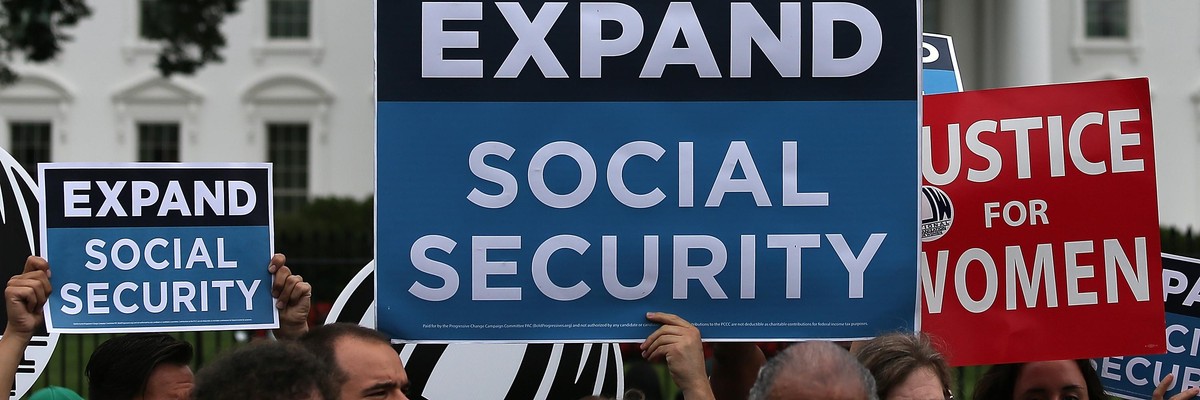House Democrats and outside groups this week are urging the U.S. Congress to quickly take up legislation that would strengthen Social Security.
"There is a fierce urgency of now to vote on Social Security. Seniors, people with disabilities, widows, and other beneficiaries cannot wait."
"It's been 50 YEARS since Congress has made any improvements to Social Security benefits," Rep. Pramila Jayapal (D-Wash.) tweeted late Tuesday. "I'm proud to be working with Rep. John Larson to not only protect but enhance this program that workers pay into with every single paycheck."
Jayapal's tweet followed a Tuesday hearing led by Larson (D-Conn.) regarding such improvements.
Entitled "The Fierce Urgency of Now--Social Security 2100: A Sacred Trust," the House Ways and Means Committee's Social Security panel hearing focused on legislation that, as subcommittee Chairman Larson put it, is "about your parents, your brothers and sisters, your aunts and uncles, your co-workers, your neighbors."
The Connecticut Democrat introduced the legislation, H.R. 5723, the Social Security 2100: A Sacred Trust Act, in October with nearly 200 co-sponsors. "The pandemic," Larson said at the time, "has only underscored what we already knew and has exacerbated systemic inequities--current benefits are not enough!"
According to a fact sheet on the proposed legislation, H.R.5723 would make changes to Social Security that include bumping up current beneficiaries' benefits by roughly 2%; changing the cost-of-living adjustment (COLA) formula to adjust for inflation; helping out low-income workers by setting the minimum benefit at 25% above the poverty line; eliminating the five-month waiting period to receive disability benefits; enacting caregiver benefits so that those who step away from the workforce aren't penalized for caring for dependents; and applying the payroll tax to wages above $400,000.
The hearing, Larson said in a statement referencing Martin Luther King's 1963 remarks, "made it clear, there is a fierce urgency of now to vote on Social Security. Seniors, people with disabilities, widows, and other beneficiaries cannot wait."
"It's time to cast a vote on behalf of all beneficiaries," he said at the hearing. "Not with cuts, but with improvements to their lives."
Stressing a need for the legislation was hearing witness Nancy Altman, president of advocacy group Social Security Works. "It is urgent, indeed, imperative, that this Congress vote on expanding Social Security to address the nation's looming retirement income crisis," she said.
"We simply cannot and must not sit by and allow millions of our fellow citizens... to spend their golden years living in poverty."
The Social Security 2100 Act, Altman said, is simply "wise policy and represents the will of the people."
Altman said the legislation is needed to address the near-disappearance of traditional employer-sponsored defined benefit pension plans and current Social Security benefits that are "extremely modest by virtually any measure."
The panel also heard from Max Richtman, president and CEO of National Committee to Preserve Social Security and Medicare, who put the proposed legislation in the context of economic hardship faced by millions of older Americans.
"The Census Bureau estimates the poverty rate in 2020 was 9 percent for Americans age 65 and older," he said. "This means despite the critical support provided by Social Security, 5 million of our elderly citizens were living in poverty last year."
Richtman added that "the poverty rate for elderly women was 10.1%, and for African-Americans it was over 17%, leaving almost 1 million elderly African Americans living in poverty in 2020"--a situation he called "unconscionable in a country as wealthy as the United States."
"We simply cannot and must not sit by and allow millions of our fellow citizens, who worked hard their entire lives, to spend their golden years living in poverty," he continued. "Every day we delay means more suffering for millions, suffering that can be greatly alleviated by enacting the important program improvements in H.R. 5723."

